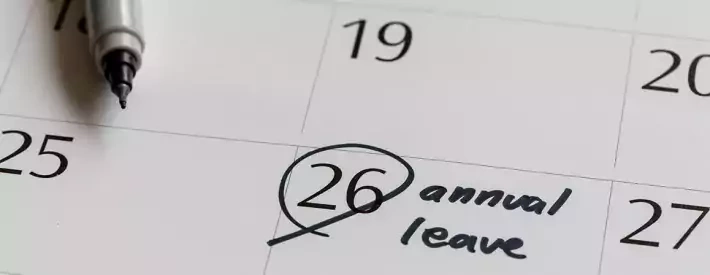Legal answers: How does COVID-19 impact annual leave?

In this article: The coronavirus has changed nearly every aspect of our working lives, but what happens to our annual leave entitlement? Taylor and Emmet’s head of Employment Law Kelly Gibson explains your rights
We all work hard and are entitled to annual leave, but the coronavirus has changed a lot of our professional lives, including the ability to take time off. So, what are our rights, as an employer and employee, when it comes to this important topic.
The Working Time Regulations 1998 (“WTR”) have been amended to allow the carry-over of untaken leave when it can’t be taken due to COVID-19. This leave can be carried over into the next two years following the year it was due to be taken. These changes have been implemented as a result of the Working Time (Coronavirus) (Amendment) Regulations 2020 (“Amendment Regulations”).
However, this only applies to the four weeks of annual leave provided under Regulation 13 WTR, not the additional 1.6 weeks provided for under Regulation 13A, or any additional leave provided under the contract of employment (although you can allow this if you wish as you could before).
How have things changed?
Regulation 13(9) WTR stipulates that the four weeks of leave provided for under the Working Time Directive can only be taken within the leave year in which it accrues.
However, a new Regulation 13(10) has been inserted into the WTR which stipulates that where it isn’t reasonably practicable for a worker to take some or all of the leave to which they were entitled under this regulation as a result of the effects of coronavirus (including on the worker, the employer, or the wider economy or society), they’re entitled to carry forward untaken leave.
How will this affect the calculation of a payment in lieu of leave on termination?
The WTR have been amended so that where a worker’s employment has been terminated, the worker can receive a payment in lieu of the accrued holiday in the following leave year if the termination happens before the worker has taken the carried-over leave.
What about the employer’s right to refuse leave on particular days?
While an employer may require a worker not to take leave on a particular day under Regulation 15(2) WTR, (subject to giving notice which complies with the formalities under the regulations), the Amendment Regulations state that the employer will only be allowed to stop the worker from taking leave which has been carried over on particular days where the employer has good reason to do so. A good reason is undefined, but it suggests that employers should not unduly restrict when the worker takes their leave.
What about taking holiday while being placed on furlough leave?
It has now been stated in HMRC guidance on the Coronavirus Job Retention Scheme that workers can take holiday while on furlough leave without it terminating furlough leave. The worker must be paid 100% of their normal pay if they take holiday while on furlough leave.
While it has not been specifically confirmed that employers can make workers take holiday while on furlough leave it’s our view that as this right exists under the WTR and the Amendment Regulations don’t address this point, or remove this right, then it’s acceptable do to so in most cases provided the employer acts reasonably. Employers should be aware that as the guidance is continually changing this could be amended in the future.




